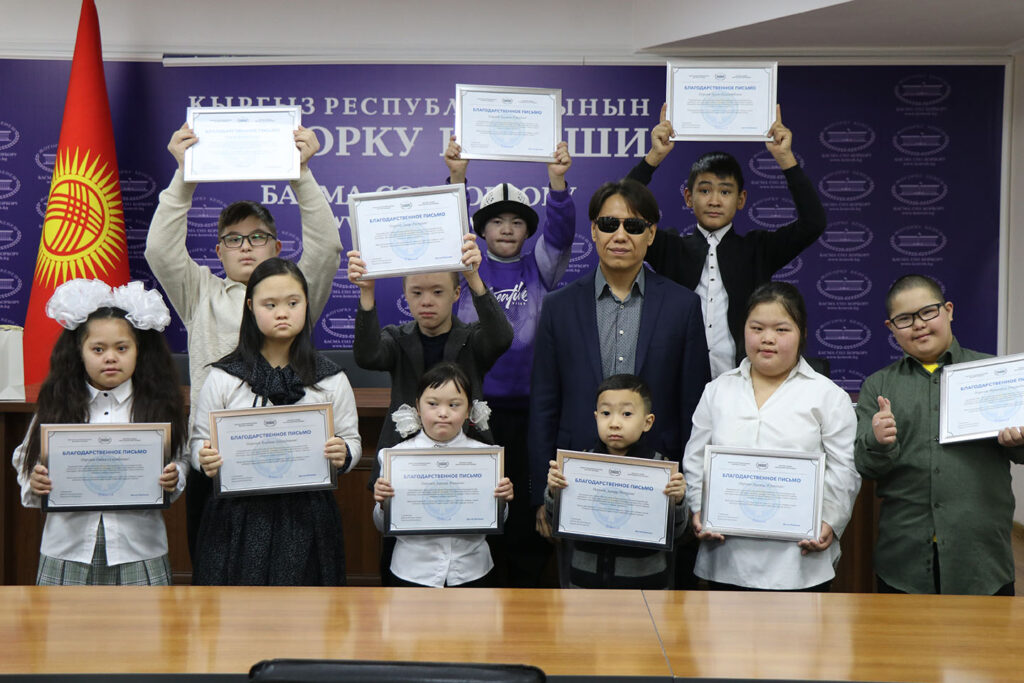Since gaining independence, the countries of the post-Soviet space have focused significant attention on finding and building an optimal strategy for developing their education systems. Dastan Bekeshev, Member of the Jogorku Kenesh (Parliament) and Deputy Chairman of the Budget Committee of the Kyrgyz Republic, spoke with OCA Magazine about the main challenges and achievements on this path.

OCA Magazine: In your opinion, what unique characteristics does the education system of the Kyrgyz Republic possess, distinguishing it from other post-Soviet countries?
Dastan Bekeshev: After gaining independence, the CIS countries sought to reform their education systems to adapt to market-based economic relations. The Kyrgyz Republic was no exception. We faced the challenge of publishing our own textbooks, creating our own education model, and placing particular emphasis on studying our native language. However, it must be said that the reforms in education, largely financed by international donors, did not yield significant results. We developed our own school textbooks and established national education standards, but these textbooks were often copied from Russian editions and simply translated into Kyrgyz. They were published with numerous errors, leading to criticism from parents. In terms of understanding and perception, these textbooks proved unsuitable, as they were written in overly complex language and failed to impart practical skills.
Textbooks became a business opportunity for many entrepreneurs, while the government could not provide them to all students. At the same time, teachers were, and still are, paid a demotivating salary—one so low that it discourages them from upgrading their qualifications. Their heavy workload leaves them occupied from morning till night with paperwork and routine tasks.
These circumstances led to the poor results of Kyrgyz schoolchildren in the 2009 PISA assessment. Now we are undergoing this assessment again, and I hope the reforms undertaken recently will yield positive outcomes. The situation has started to change, with teacher salaries being discussed at the highest level, and the Cabinet of Ministers is looking for resources to increase them in 2026. The 2023 increase was overshadowed by high inflation. Furthermore, textbooks are being revised, and Singapore’s education system has been taken as a reference point. We are no longer simply translating or copying textbooks—we are adapting them to our reality. From this year, teachers will be provided with laptops to ease their workload, and artificial intelligence will start assisting with lesson planning. The Ministry of Education is also discussing a new document that significantly reduces the reporting burden on teachers. However, problems with infrastructure remain and there is a shortage of kindergartens and schools. We still lack a significant number of school facilities.
OCA: What achievements and challenges do you see as key for education development at this stage?
DB: One achievement is that there are increasingly more resources being allocated from the republican budget to education. Within its financial capacity, the Cabinet of Ministers has begun investing in the education sector. Currently, the goal has been set to move to a 12-year school education system, which in turn will require even more financial investment and efforts to improve teacher qualifications. This year marks the start of the transition to 12-year schooling and the updating of textbooks, but our schools are not yet ready. Classes are already overcrowded, and this transition will place even greater demands on existing infrastructure.
The development of artificial intelligence may help ease the load and orient school education towards a more individualised approach. The Minister of Education understands the current global trends and is already trying to integrate AI into the curriculum. As a parliamentarian, I also encourage the Minister to use AI in schools and to teach the essential life skills that are most needed.
OCA: What are the main trends you see in the transformation of the education system, and what might they lead to in 10 years’ time?
DB: With the rise of artificial intelligence, which is influencing every sphere of life, including education, it is difficult to make precise predictions for the next 10 years. However, one thing has become clear: we must provide knowledge not only based on market demand, but also on the broader goals of the country’s development. Kyrgyzstan needs to strengthen its human capital, which has been significantly depleted over the years. We must train specialists in mining, agriculture, medicine, and information technology—areas that are crucial for the country’s development.
OCA: How does Kyrgyzstan envision the development of international cooperation in education? What factors could facilitate or hinder this?
DB: Kyrgyzstan aims to swiftly absorb the experience of developed countries. Undoubtedly, we would like to collaborate with leading universities, education experts, governments, and companies willing to share their expertise.
